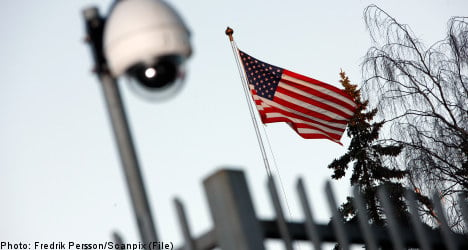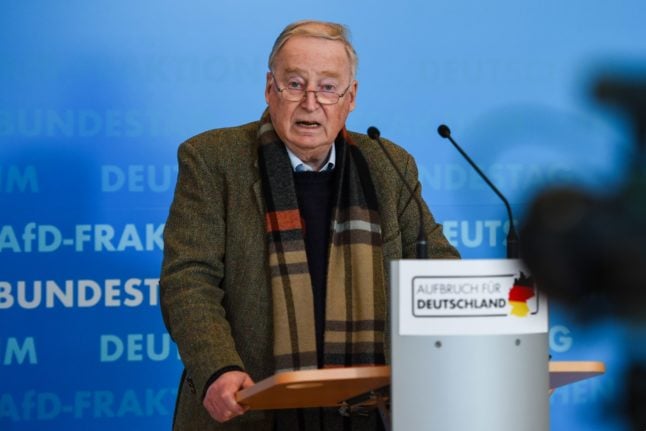“I must say it wasn’t unexpected,” prosecutor Tomas Lindstrand told The Local.
Since November, Lindstrand has been looking into whether the embassy’s Surveillance Detection Unit (SDU) may have engaged in illegal intelligence gathering.
According to the embassy, the SDU is focused on uncovering surveillance directed against the embassy.
Lindstrand has been in touch with around ten people who have been active in the embassy’s programme, but all of them have refused to answer the prosecutor’s questions, citing professional secrecy.
“They have however declared that they don’t want to discuss the matter,” Lindstrand said.
“It’s a shame because it’s really slowing down the investigation.”
While not entirely surprised by the embassy workers’ unwillingness to testify, Lindstrand suggested that there was more than one way to interpret workplace confidentiality.
“The people working at the US embassy read the rule book in a way that you can’t really argue with, although it could have been interpreted differently,” he said.
Speaking with Sveriges Radio (SR), Lindstrand said the US State Department in Washington is looking into the possibility of lifting the gag clause for those involved in the SDU programme, which is in place at a number of US embassies around the world
US embassy spokesperson Chris Dunnett told SR he had not been informed about any problems with Lindstrand’s investigation.
“I can’t see any difficulties, we are fully co-operating with the Swedish authorities”, he told SR.
Justice minister Beatrice Ask, said in November that she was not aware of the US surveillance programme, which has been in place since 2000.
The embassy has acknowledged the programme, explaining that it had informed the Swedish authorities about its existence.
Attempts by The Local to reach the US embassy for comment were unsuccessful.



 Please whitelist us to continue reading.
Please whitelist us to continue reading.
Member comments